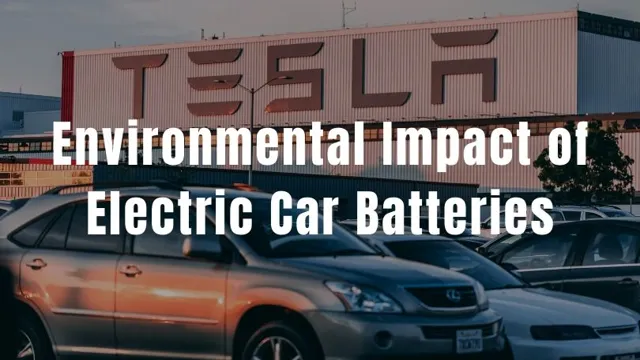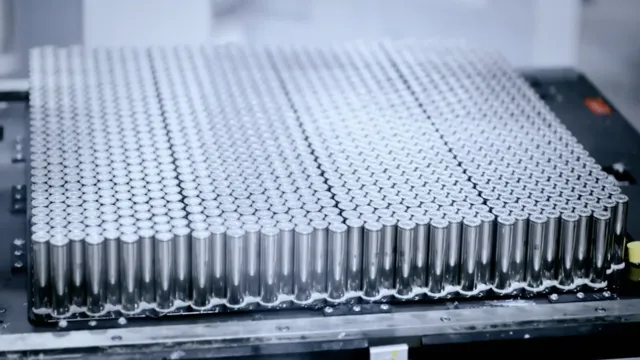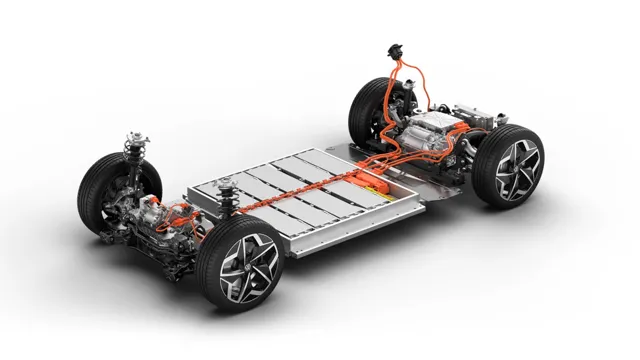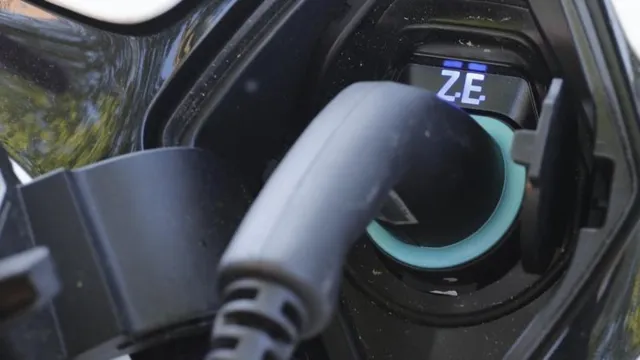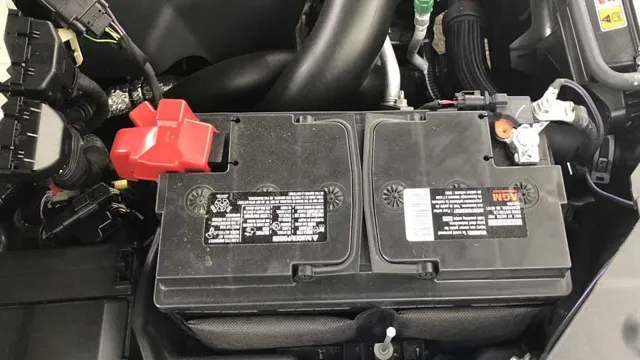Shocking Truth About Electric Car Batteries: Debunking the Pollution Myth
Electric cars are becoming increasingly popular as people seek more environmentally friendly alternatives to traditional fossil fuel vehicles. While electric cars offer many benefits, such as lower emissions and fuel costs, there is still some confusion and debate surrounding their batteries. Some people worry that electric car batteries are not as environmentally friendly as they claim and that their production causes more pollution than conventional car batteries.
So, is this fact or fiction? Let’s dive into the topic of electric car batteries and pollution, separating the truth from the misconceptions.
Electric Cars Produce Fewer Emissions
When it comes to emissions, electric cars tend to fare better than gas-powered cars. One reason is that electric cars produce zero emissions from the tailpipe. However, the production of electric car batteries does generate some pollution.
This is primarily due to the mining and processing of the raw materials used in the batteries. Despite this, studies have shown that electric cars still produce fewer emissions than gas cars over their entire lifecycle. In fact, depending on the source of electricity used to power electric cars, they can emit up to 70% less CO2 than gas cars.
This is an important distinction because it means that even if electric cars were charged using fossil fuels, they would still produce fewer emissions than gas cars. When it comes to reducing emissions and mitigating climate change, electric cars can play a significant role. By switching to electric cars, we can reduce our dependence on fossil fuels and decrease emissions to help protect the planet.
Comparing Battery and Gasoline Emissions
As the world becomes more conscious of the environment and the impact we have on it, many are turning to electric cars as a more eco-friendly alternative to gasoline-powered vehicles. And the numbers don’t lie – electric cars produce significantly fewer emissions than their gas-powered counterparts. While gas-powered cars create emissions such as carbon monoxide and nitrogen oxide, electric cars produce zero tailpipe emissions.
In fact, the only emissions electric cars produce are from the power plants that charge them. However, even when taking into account the emissions produced by power plants, electric cars still come out on top as a greener option. Think of it like this – it’s much more efficient to produce and distribute energy from a large power plant than it is to extract, refine, and distribute gasoline to millions of individual cars.
So, while electric cars may have a higher up-front cost, when it comes to the environment and sustainability, they’re the clear winner.

Lifecycle Emissions of Electric Cars
When it comes to the environment, electric cars have been hailed as the way forward in reducing carbon emissions. While traditional gasoline-powered cars emit harmful greenhouse gases throughout their lives, electric cars produce fewer emissions overall, even when accounting for their manufacturing process and eventual disposal. In fact, recent studies have shown that electric cars emit 50% less greenhouse gases than gasoline-powered cars over their lifecycle.
This is because electric cars run on electricity, which can be generated from renewable sources such as wind, solar, and hydro power. Of course, the emissions produced during the manufacturing of electric cars do have an impact on the environment, but they are generally much lower than those from traditional cars. It’s important to note that even though electric cars are a step in the right direction, they still produce emissions from their manufacturing and eventual disposal.
However, when compared to traditional gas-powered vehicles, electric cars are the more environmentally-friendly choice.
Battery Production Is a Challenge
Producing batteries for electric cars has become a significant challenge for the industry as concerns over pollution have increased. The process of producing batteries requires significant amounts of energy and precious metals such as lithium, cobalt, and nickel. Mining these metals causes damage to the environment and even poses a risk to human health.
Furthermore, the production process of electric car batteries generates greenhouse gases and toxic waste, which can have negative effects on the environment. As the number of electric cars on the road continues to grow, the demand for battery production will only increase, making it essential to find sustainable and environmentally friendly ways to produce them. Companies are now focusing on recycling batteries and developing alternative ways to extract and process metals to minimize the environmental impact.
Nevertheless, despite the challenges, electric cars remain crucial to reducing carbon emissions and combating climate change. It is a balancing act that requires manufacturers to prioritize sustainability while still meeting the growing demand for electric cars.
Impact of Battery Production on Air and Water Quality
Battery production is a crucial process for the development of modern technology, but it’s also a significant challenge for preserving the environment. In recent years, the increasing demand for batteries has led to a surge in their production, which has had severe impacts on air and water quality in the areas where they are manufactured. The process of producing batteries involves the extraction of raw materials, transportation, and manufacturing.
All these activities release pollutants that affect the environment, human health, and wildlife. To extract raw materials used to develop batteries such as cobalt, manganese, and nickel, companies often engage in environmentally destructive methods such as open-pit mining. These methods lead to the contamination of water sources and land degradation, which can cause environmental decline.
In addition, the transportation of these raw materials involves the use of fossil fuels, which emits toxic chemicals and greenhouse gases into the air, leading to pollution and climate change. The manufacturing process also includes hazardous activities such as smelting and chemical treatment. These activities release pollutants such as sulfur dioxide, nitrogen oxide, and airborne toxins, which can cause respiratory diseases and other severe health problems for the workers and surrounding communities.
Moreover, the wastewater generated during battery production contains toxic chemicals that are hazardous to life and the environment. In conclusion, battery production is a daunting task that presents environmental challenges. The industry must adopt responsible production practices and innovative technologies to reduce its impact on air and water quality while ensuring the sustainable development of modern technology.
It’s our collective responsibility to do everything possible to protect the environment while promoting scientific advancements.
Sustainability Efforts in Battery Production
Sustainability efforts in battery production are essential because battery production is a challenging process. Batteries require a significant amount of energy to produce, especially when it comes to the mining and extraction of raw materials like lithium and cobalt. Additionally, battery production creates a lot of emissions and waste; thus, the industry needs to adopt sustainable methods and technologies to mitigate these negative impacts.
There are several ways battery manufacturers can implement sustainable practices, such as using renewable energy sources, recycling, and reducing the use of toxic chemicals. These efforts not only benefit the environment but can also bring economic advantages to the industry. Ultimately, we need to develop more sustainable solutions for battery production if we want to continue to benefit from the technology while minimizing its negative impact on the planet.
Developments in Battery Recycling
Battery recycling has become a prominent issue due to the ever-increasing demand for electronic devices and electric vehicles. The production of batteries, especially lithium-ion batteries, is a challenge that requires proper sustainable management and recycling to reduce the environmental impact. These batteries contain hazardous materials such as lead, cadmium, and mercury which can cause severe damage to the environment and human health.
In recent years, there have been significant developments in battery recycling to reduce the environmental impact and extract valuable materials from these batteries. Companies are now focusing on developing efficient and cost-effective recycling technologies that can extract valuable metals such as cobalt, nickel, and lithium from spent batteries. Battery recycling not only reduces the environmental impact but also helps to reduce the cost of producing new batteries.
As consumers, we can also play a crucial role in battery recycling by disposing of our batteries properly and ensuring that they are recycled. By doing so, we can create a sustainable future and protect our environment for future generations.
The Role of Government and Industry
The production of electric car batteries has undoubtedly reduced pollution in the transport industry. However, the manufacturing process of these batteries can still have significant environmental impacts. It is the responsibility of both the government and the industry to address this issue.
Governments must implement regulations that prioritize the use of renewable energy sources for battery production and establish guidelines for responsible waste disposal. Meanwhile, industry leaders need to invest in sustainable solutions and actively seek ways to minimize the environmental impact of their production processes. One example of this is the development of battery recycling technology that can extract valuable materials from used batteries and reduce waste.
By working together, both government and industry can ensure that the production of electric car batteries will continue to benefit the environment while minimizing its negative impact.
Regulations and Incentives for Sustainable Battery Production
The production of sustainable batteries is a growing concern in the world today. To ensure that the environment is not compromised, governments and industries are coming up with regulations and incentives to guide the manufacturing of these batteries. The governments play a crucial role in enforcing environmental regulations and offering incentives to encourage companies to produce sustainable batteries.
For instance, the government can provide financial incentives to companies that move towards sustainable battery production. On the other hand, companies can invest in sustainable battery manufacturing technologies and practices to achieve eco-friendly production. These regulations and incentives encourage companies to embrace sustainable battery production, which has a lesser impact on the environment.
Government leaders and industry stakeholders can work together to monitor the process and ensure that manufacturers comply with the regulations. By working together to drive sustainable battery production forward, we can help reduce carbon emissions for the betterment of the world and future generations.
Leading Companies in Sustainable Battery Production
When it comes to sustainable battery production, the role of both government and industry is crucial. Leading companies in this field have recognized the importance of reducing their carbon footprint and have implemented measures to do so. For instance, Tesla has built a large-scale battery factory that uses renewable energy to power its operations.
Other companies like BYD, LG Chem, and Panasonic have also taken steps to improve their sustainability practices by investing in renewable energy and reducing greenhouse gas emissions. Additionally, governments around the world have implemented policies and regulations to promote sustainable battery production, such as France’s ban on the sale of non-electric or non-hybrid cars by 2040 and China’s mandate that all electric vehicles sold in the country must contain a certain percentage of locally made components. Overall, a combination of industry initiatives and government action will be necessary to ensure the sustainable production of batteries for the future.
Conclusion: Electric Cars and a Cleaner Future
In the end, the debate over electric car batteries and their pollution effects is like an electric current – it has ups and downs. While it is true that battery production does create emissions, the technology is developing rapidly, and the benefits of electric cars over their fossil fuel counterparts cannot be ignored. For a sustainable future, it’s important to focus on reducing the overall carbon footprint of manufacturing and driving, while continuing to make strides in battery recycling and renewable energy sources.
With a shockingly bright future ahead, electric cars are a charge in the right direction for a cleaner planet.”
FAQs
How do electric car batteries impact the environment?
While electric cars themselves produce zero emissions, the manufacturing and disposal of their batteries can contribute to pollution if proper measures are not taken. However, advancements in battery technology and recycling methods are making electric car batteries increasingly environmentally friendly.
Can electric car batteries be recycled?
Yes, electric car batteries can be recycled. In fact, the recycling of electric car batteries is becoming more common and cost-effective as demand for electric vehicles increases. Recycling reduces the environmental impact of battery disposal and can also make the production of new batteries more sustainable.
How long do electric car batteries last?
The lifespan of an electric car battery varies depending on the model of the car and how it is used and maintained. On average, electric car batteries can last anywhere from 8 to 12 years before needing to be replaced. Advances in battery technology are also making electric car batteries more durable and long-lasting.
Can electric cars reduce overall pollution levels?
Yes, electric cars can reduce overall pollution levels. Because they produce zero emissions while driving, electric cars can significantly reduce air pollution in cities and other densely populated areas. However, it’s important to consider the environmental impact of the battery production and disposal process to fully understand the overall environmental impact of electric cars.

